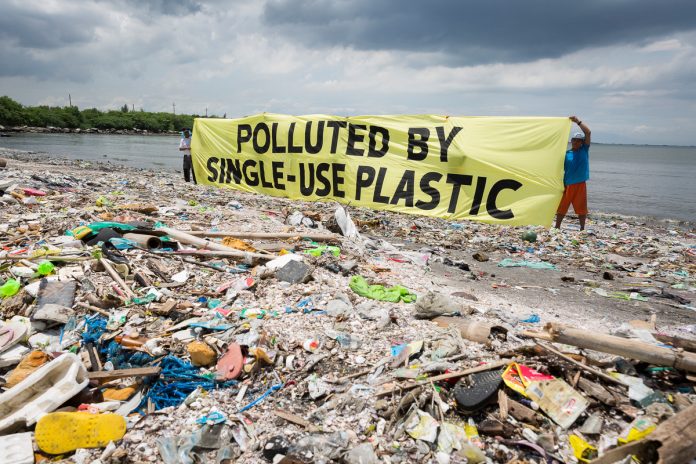Pro-environment and civil society organizations on Wednesday marked the National Fisherfolk Day with a call for a more ambitious Philippine policy on single-use plastics.
Fisherfolks group PANGISDA Pilipinas said plastic pollution affects the livelihood of fishing communities due to “habitat loss triggered by massive habitat destruction aggravated by plastic pollution.”
“Collection and handling of plastics are nothing but a costly burden on government coffers because there are no safe recycling options for such materials. That’s why we’re calling to have sachets and other single-use plastics removed from the market,” said Pablo Rosales, chairman of the PANGISDA Pilipinas.
The groups urged governments and the Philippine delegation to the second round of international negotiations (INC-2) on plastic pollution “to adopt a strong global plastics treaty” – a legally binding instrument to end plastic pollution.
At least 175 countries are now in Paris for the second of the five-part negotiations for the drafting of the global plastic treaty.
“We forward our calls to global leaders to demand a binding treaty for plastic reduction, global transparency, and uphold the rights and environmental justice of affected communities and informal waste sectors,” said Jam Lorenzo of BAN Toxics.
According to the Ellen MacArthur Foundation, plastic waste is likely to outweigh all fish in the sea by 2050 if no significant action is taken. Hundreds and thousands of tons of plastic can be found in swirling convergences that make up about 40 percent of the world’s ocean surfaces.
In November last year, civil society groups filed a complaint before the country’s trade and industry department against seven companies for using dangerous plastic packaging and rolling out false or misleading advertisements on plastic recyclability.
Youth leader Enrique Beren, one of the complainants, said, “Manufacturers are also being dishonest by using recycling labels and chasing-arrow symbols in their product packaging even though there are no safe plastic recycling options anywhere in the world. Why they are in the ocean in the first place is already a smack to their deceitful advertisements.”
In a March 2023 survey of the Social Weather Stations, the majority of Filipino consumers are “confused with recycling labels used in plastic packaging.”
The survey indicated that more than half of 1,200 respondents, or 54 percent, mistook the Tidyman logo as a recycling label.
The Tidyman logo is often associated with ‘don’t litter’ or ‘dispose properly’ reminders and is not considered a recycling symbol.
Miko Aliño of Break Free From Plastic Movement said corporations “are shoving their responsibility of addressing the plastic pollution problem to consumers and even local governments, knowing that existing waste management infrastructure is inadequate to safely handle sachets and other plastic discards.”
“Worse, they are peddling unproven and harmful false solutions such as chemical recycling and plastic burning in cement kilns, instead of adopting reuse-based and packaging-free business models,” he added.
According to the Organization for Economic Cooperation and Development, only nine percent of plastic waste was recycled in 2019, while almost 70 percent were either landfilled or incinerated.
Marian Ledesma of Greenpeace said, “Recycling actually increases the toxicity of plastics, posing a threat to the health of consumers, frontline communities, and workers in the recycling sector.”
She said the Global Plastics Treaty negotiations “must focus on capping and then phasing down plastic production.”
The global plastics treaty that is expected to be adopted by 2025 will cover measures to address pollution throughout the existence of plastic, from extraction to remediation.









